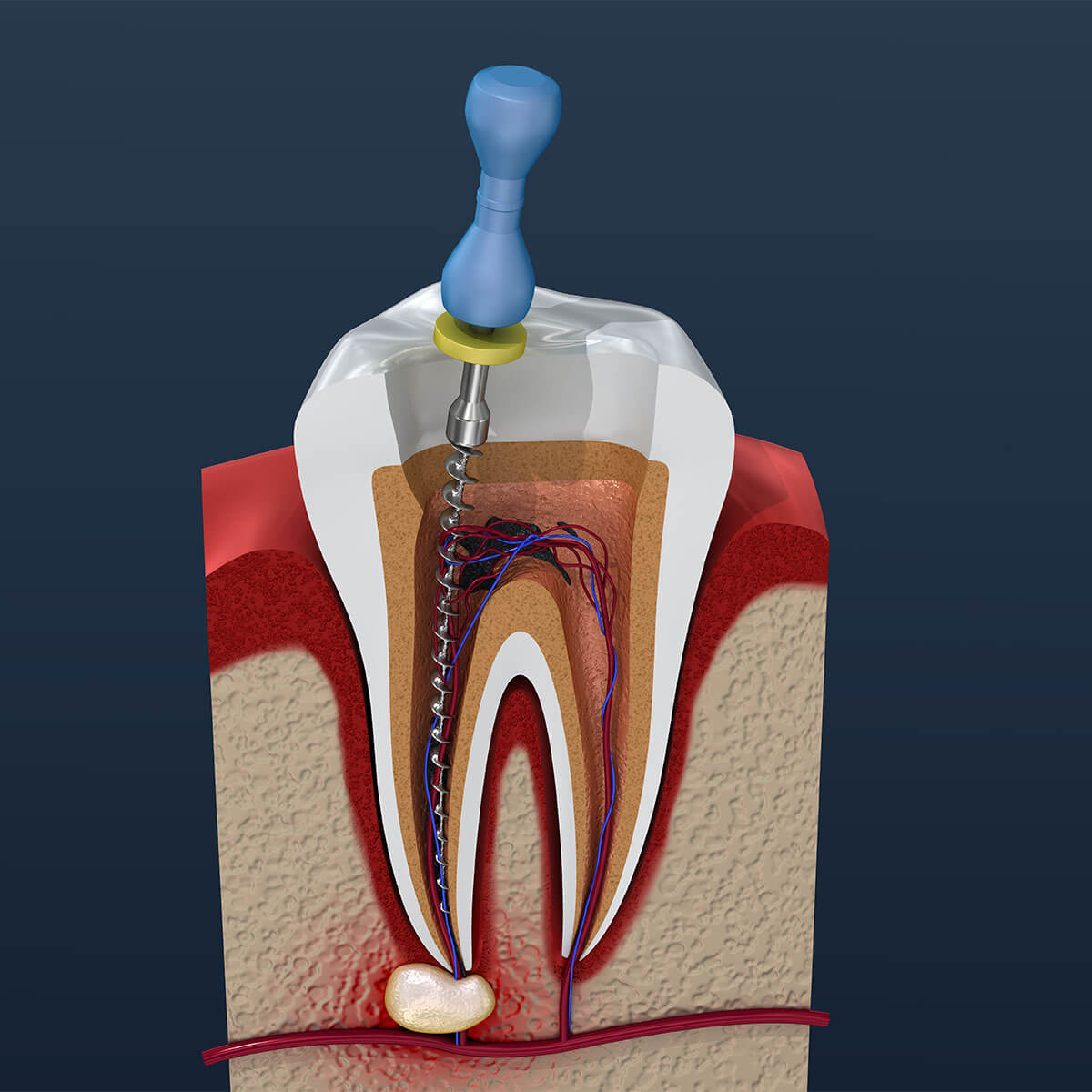The truth about root canal treatment it relieves pain and preserves natural teeth
At Hyde Park Dentistry in London, Ontario, we intimately know the power of the “smile makeover.” Drs. Ashish Papneja and Marjan Moaveni use a variety of techniques to transform smiles marred by gaps and decay. And we appreciate that one of the most common dental treatments, root canal therapy, is in desperate need of a “makeover,” too.
The public needlessly dreads root canal treatment. We have all heard this technique compared to truly unpleasant circumstances (“I’d rather live with my in-laws than have a root canal!”). The truth is root canal treatment is a straightforward, non-surgical procedure that can be completed in a single office visit. Treatment also resolves pain rather than contributes to it.
Additionally, root canal therapy may be the only way to preserve a deeply infected or badly damaged natural tooth. The treated tooth’s health, structure, appearance, and function are restored by resolving severe decay or deep inflammation and infection. You avoid the need for extraction and the loss of a natural tooth.
How root canal therapy brings relief
Think of root canal treatment as a “deep cleaning” for the inside of a damaged tooth. Trauma to the inner parts of the teeth cannot be treated with modifications to oral hygiene, oral care products, and even with alternate dental restorations such as fillings, inlays, onlays (partial crowns), or full-coverage crowns. Fillings, for instance, “fill in” or treat cavities or holes in the tooth. Inlays or onlays restore teeth that are marred by more extensive damage to the tooth’s surface and, in the case of an onlay, damage to at least one tooth cusp or “point.” The conditions that these restorations resolve do not affect the pulp tissue at the center of the tooth.
The pulp contains nerves and blood vessels. So, when you have damage to this part of the tooth, you will probably know it! Symptoms that indicate severe damage to your teeth and, potentially, the need for root canal therapy include:
- Sensitivity, especially when drinking or eating hot, cold, or sweet beverages and foods
- Pain when biting down or chewing
- A persistent, painful toothache
- Dark spots or stains
- Visible pitted areas
- Swollen gums
- Facial swelling
- Chronic bad breath
- Foul taste
Root canal treatment at Hyde Park Dentistry

Why would someone need root canal treatment?
Hi, my name is Dr. Ashish Papneja, and I work at Hyde Park Dentistry in London, Ontario.
Root canals are needed because you have an infection in your tooth. Some symptoms associated with root canals are persistent pain, sensitivity to heat/cold, tooth discoloration or swollen gums, etc.
Is root canal treatment painful?
The procedure is relatively straightforward. There is a misconception about root canals and pain.
It is relatively pain-free. You get freezing in the area like you would any dental procedure. The procedure takes about an hour to an hour and a half.
What is the process of getting a root canal treatment?
We remove the nerve tissue in the tooth, and we put medicine in the tooth to make sure it is very clean, and all the bacteria are removed.
We then fill that space with filling material, and then you would have to return for restoration on top of the tooth. Root canals are a great procedure because it allows us to save your tooth.
Feel free to give us a call and make an appointment to get your root canal treatments done.
Symptoms such as facial swelling can also indicate the presence of an abscess. This infection can spread to other parts of the face and body. Systemic infections are medical emergencies that require immediate care, and they may be characterized by a high fever and difficulty breathing and swallowing.
Of course, our team works proactively with patients to prevent these problems. But, if you need root canal therapy, we can quickly ease the pain and pressure with root canal treatment. The process itself is not painful; we use precision anesthetic for utmost comfort. By opening the tooth to access the pulp chamber, we also release pressure and help to relieve pain. After the pulp is accessed, the decayed tissue is removed, the area is cleaned, and the root canals are shaped. The treatment site is also sealed off with a filling material. Usually, the tooth is restored to its lovely appearance and strength with an attractively and natural-looking crown.
Root canal treatment is nothing to fear! But, if you remain apprehensive about your procedure, we are happy to discuss sedative options to maintain relaxation throughout the process—Call 226-271-2522 to schedule your appointment with Drs. Ashish Papneja or Marjan Moaveni today.


